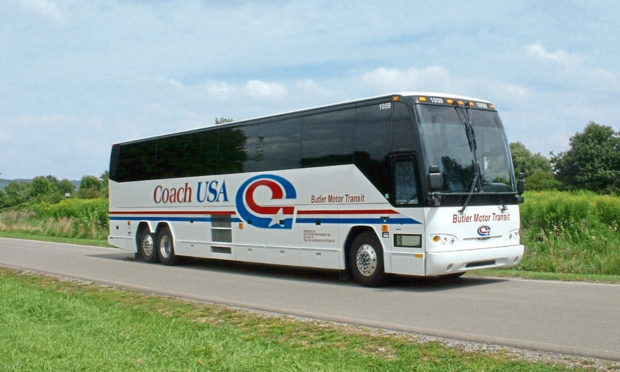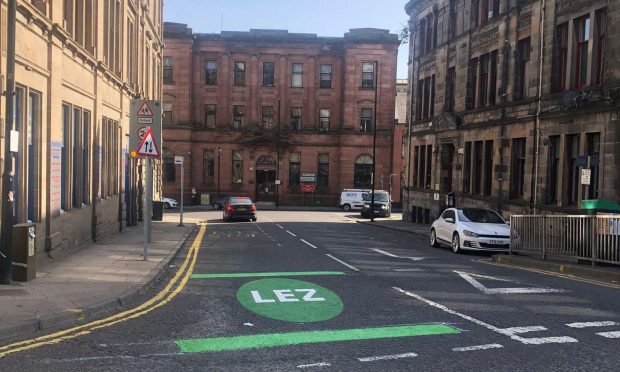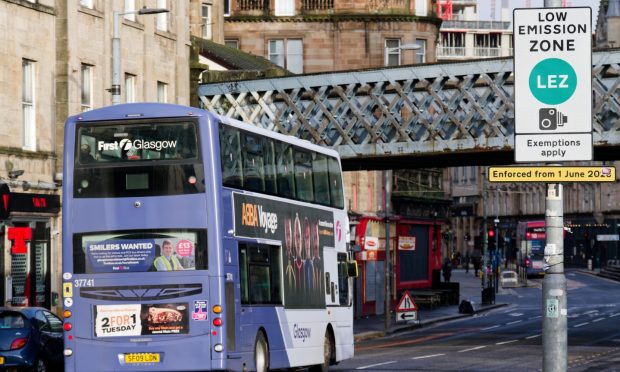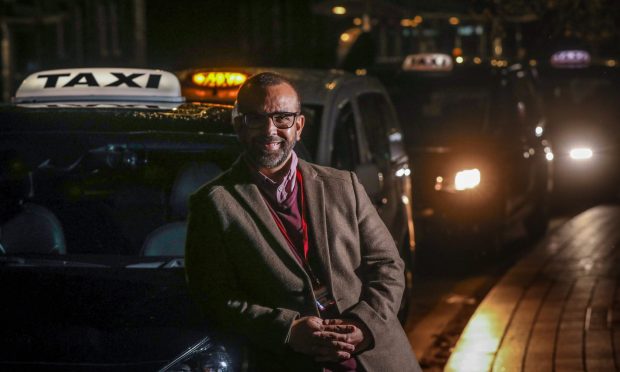Perth public transport giant Stagecoach is to refocus on its UK operations after ending its American dream.
The group – which started to build out its North American network in the 1990s – yesterday revealed it had agreed a sale of the poorly performing division for a total transaction value of £214.4 million.
The ‘“locked box” deal with private equity group Variant Equity Advisors will see Stagecoach subsidiary Scusi Limited receive a circa £163m payment up front.
Under the terms of the agreement, a further £51m will be payable on completion of the deal, which is expected in April.
However, that secondary figure may change as a result of future “leakage transactions” such as further dividend payments ahead of the deal completing.
Stagecoach said proceeds from the sale would be used to reduce the group’s consolidated net debt.
The North American business includes megabus.com inter-city coach services, commuter services, airport transportation, sightseeing tours and charter services.
The division has a fleet of more than 2,000 vehicles and employs more than 4,500 staff.
However, it has faced significant challenges in recent years and the group earlier this month wrote down the value of the US business by £85.4m, a move that contributed to the business falling in to the red in the first half of the year.
Despite the statutory loss, shares in Stagecoach surged by more than 15% on that day after Stagecoach revealed it was in talks to offload the US business.
Stock in the group initially lifted on the sale report yesterday morning but settled back within a short period.
“During our two decades in the North American transportation market, our success included reinvigorating the inter-city coach sector and delivering growth with our innovative megabus.com brand,” Stagecoach group chief executive Martin Griffiths said.
“We have a great team of people who have ensured we have played a leading role in the development of public transportation in the United States and Canada.”
Announcing the sale to the London Stock Exchange, Stagecoach said the disposal was an opportunity to “realise an attractive valuation for the business whilst refocusing Stageoach’s portfolio in the UK.”
The North American management team will be retained by the new owners following the sale.
Mr Griffiths added: “The sale of our North American operations will allow management to focus more closely on the significant opportunities for growth in the UK.
“We have strong bus and rail operations in the UK where public transport has good prospects as the clear solution to the challenges of increasing road congestion and poor air quality.”
The sale comes after a tumultuous year for Stagecoach after it was stripped of the East Coast Main Line rail franchise by the Government in June.
Half-year results earlier this month saw the group post a pre-tax loss of £22.6m for the six months to October 27 against profits of £96.7m a year earlier.
Transport analyst Gerald Khoo at Liberum said the sale was “sensible”, but came at a “disappointing” price.
“The group needed to get big or get out,” Mr Khoo said.
“Given the headwinds to demand from lower fuel prices making car travel and airline competitors more price competitive, growing Megabus organically was challenging.”
“Against that backdrop, exiting North America appears the better option, in our view.”










